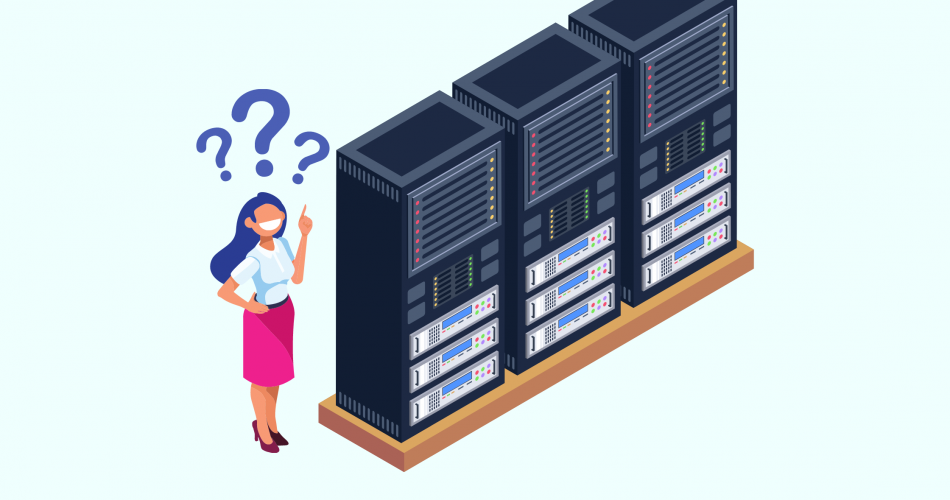What is a bare metal server? A bare-metal server is also known as a single-tenant physical server and is commonly known as a Dedicated server. A bare-metal server is owned by you and doesn’t share resources while Cloud instances, such as those provided by AWS or Google Cloud Platform, are shared servers you do not own; rather, you just pay to rent space on it.
For what use cases do corporations use a bare-metal server?
Bare metal servers are most commonly used for business-critical applications that need high performance computing (HPC) for large scale databases or memory caching, or for any application that requires custom hardware configurations like GPUs. You can also virtualize your bare metal servers if needed for your business model.
Here are 5 reasons why a Bare-Metal server might be the right choice for your project:
1. Only one tenant per bare-metal server.
The key benefit of having a dedicated, bare-metal server is – You’re the only tenant on your server. With no hypervisor layer, as well as no virtualization overhead, there are no noisy neighbors and hence no resource contention.
You have complete control of your server. This means you can get access to all raw computing resources without any limitations from the provider or hypervisor.
You can use your own choice of operating system and install third-party applications. Need Windows Server 2012? Linux? No problem! Because it’s your server, you can run whatever apps you want that meets your business’s needs.
2. Uncompromised performance.
Bare-metal servers are not virtualized. That means that there is no virtualization layer between the physical server hardware and the operating system (OS) of your choice.
What does this mean to you? Well, as we mentioned earlier, a bare-metal server is its own entity. It’s not sharing resources with other servers in a cloud environment, which gives you full control over the entire computing environment. This allows bare-metal servers to offer uncompromised performance.
It also means that there’s no multitenancy or noisy neighbors to worry about. Your performance isn’t impacted by what others are doing on the same host machine because there IS no shared host machine for multiple users! This is a different scenario from traditional VPS hosting and modern Cloud instances where customers share the same physical hardware with many other customers through software or hardware partitioning called virtualization
3. Extreme levels of security.
Since bare-metal servers exist without a shared operating system, they provide an extreme level of security. You are not sharing resources with other tenants, and your data is safe.
A big part of what makes shared hosting so cheap is that providers can pack hundreds (or even thousands) of customers into a single server.
This means that if one customer does something careless or unsafe, all the other accounts on the same server could be affected.
The way things are set up now, your data is vulnerable to being breached by some careless neighbor — but with a bare metal server, you have control over who accesses your server and when.
This can help prevent any serious hacking attempts against your site from happening within shared hosting environments because no one else has access to your machine.
4. Bare-Metal Servers offer higher levels of availability and reliability.
You’ll be glad to know that these servers are more reliable and available than virtual servers, in large part because they don’t run any other VMs.
Since you’re directly controlling the physical server, you don’t have to worry about competing for resources with other applications running on it.
For example, if one application is using too much memory or storage space, your application will not suffer any performance issues as a result.
Bare-metal servers offer higher levels of availability and reliability due to their exclusive use of dedicated compute resources — this includes CPU cycles that would otherwise get used by unoptimized virtual machines running on the same hardware!
Bare metal has become more common now as larger IT infrastructures are being moved to bare-metal dedicated servers.
5. Bare-Metal Servers are fully customizable.
Customizing your own server is when the fun really begins. With a bare-metal server, you choose the OS and the hardware you need. You have the power to upgrade your server as you need.
You have the flexibility to change your server as you grow. As long as it’s legal, ethical, and falls within compliance guidelines, there are no limits to what you can do with a bare-metal server.
You can add software and applications, load your own software or install whatever else you want on your bare-metal servers. They’re yours!
With a dedicated physical server, you have complete control over every aspect of its operation – from choosing which hardware it runs to deciding where data is stored and how it is accessed and shared in real-time.
You get to choose every piece of hardware for optimal performance for each task that must be done on that specific machine (or machines).
You can’t go wrong by choosing a Bare-Metal server for your project
There are multiple reasons why you would want to choose Bare-Metal servers for your project. Simply put, with a bare metal dedicated server, you can’t go wrong. When you choose a bare-metal based setup, there isn’t a ton of CapEx involved. You can finally concentrate on growing your business rather than spending time on infrastructure and resource bidding on the cloud.

